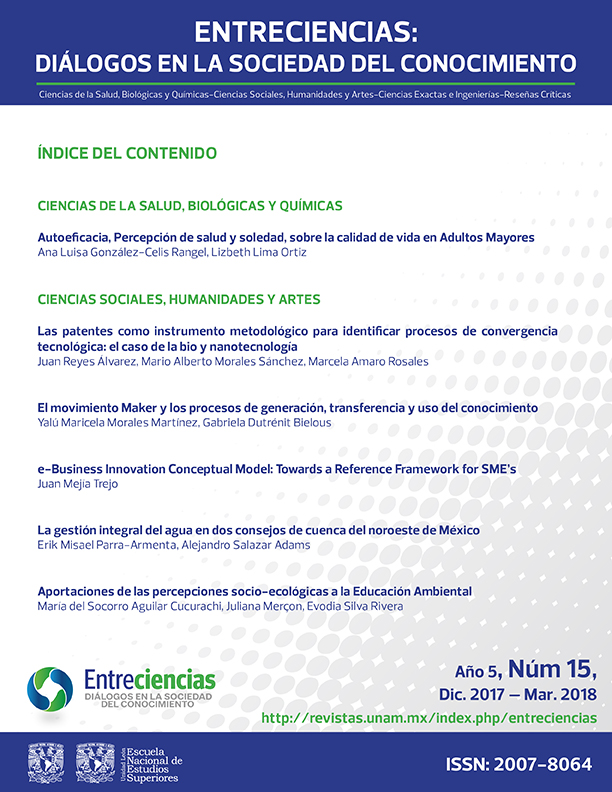Contributions of socio-ecological perceptions to Environmental Education
Main Article Content
Abstract
In the context of the current socio-ecological crisis, it is important to analyze how human groups give meaning to nature; which is the main objective of our study of perceptions. Environmental Education emerged as an interdisciplinary field that aims at reinforcing people’s connections with nature, by enhancing environmentally conscious attitudes, values and behaviors, which could ultimately mitigateor, reverse some of the most pressing ecological consequences of human activities. One of the tasks of Environmental Education is to understand the different ways in which societies connect with nature and how this relationship is perceived. To achieve this goal, it is relevant to consider social-ecological perceptions as a framework for documenting and reflecting upon these realities, as well as for constructing and evaluating educational processes. We argue that the study of perceptions should be framed within an interdisciplinary scheme. We conclude by highlighting three ways in which perceptions can contribute to Environmental Education: 1) Environmental Education as an object of perception and analysis; 2) Environmental Education as a transformative notion of socio-ecological perceptions, and 3) The recognition of perceptions as a powerful pedagogical tool. Moreover, acknowledging the contributions of socio-ecological perceptions to the field of Environmental Education could open multiple possibilities for strengthening educational processes from and for the different socio-ecological realities.
Downloads
Article Details
Citas en Dimensions Service

Entreciencias: Diálogos en la Sociedad del Conocimiento recognizes and respects the moral rights of authors as well as ownership rights transferred in non-exclusivity to the journal for its open access dissemination and its preservation. Hence, authors who publish in this journal accept the following conditions:
- Entreciencias: Diálogos en la Sociedad del Conocimiento from Universidad Nacional Autónoma de México is distributed under a Licencia Creative Commons Atribución-NoComercial-SinDerivar 4.0 Internacional, which allows the information and metadata to be used without commercial ends as long as proper citation is utilized.
Authors will have the right to non-exclusively distribute the contribution made to Entreciencias: Diálogos en la Sociedad del Conocimiento. That is, they will be able to include it in an institutional repository or disseminate it in other digital or printed media as long as it is explicitly stated that it was first published in Entreciencias: Diálogos en la Sociedad del Conocimiento. The following information must additionally be included: author, year, volume, page numbers, electronic paging, and DOI.
Authors, whose publications have been accepted, will have to send the Letter of Copyright Transfer in the corresponding format, filled out and signed by the author or authors.
